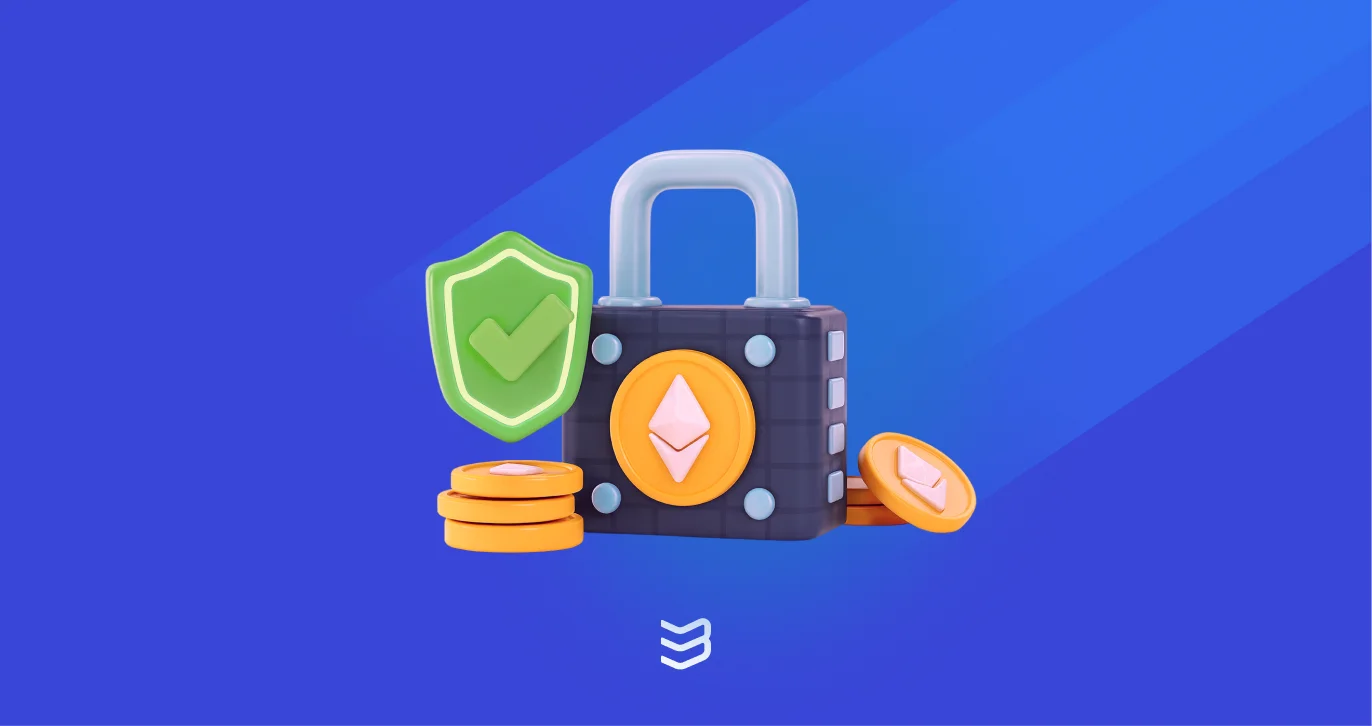tl;dr
- Crypto wallets are essential tools for managing digital assets like Bitcoin and Ethereum, allowing users to store, send, and receive cryptocurrencies.
- Unlike traditional wallets, crypto wallets don't store currency; instead, they hold cryptographic keys that access and manage assets on the blockchain.
- The public key (or wallet address) is used to receive crypto, while the private key is like a password, giving full control over the assets and needing absolute protection.
- Wallets function as an interface, connecting to blockchain networks to broadcast transactions and keep your private key secure.
- Transactions involve entering the recipient's address and amount, then signing with your private key before being broadcast to the blockchain.
A Brief Introduction to Wallets
Want to trade crypto assets or hold crypto without a custodian? Looks like you need a wallet.
As cryptocurrencies continue to reshape finance and technology, the need for secure, user-friendly storage has become more important than ever. Crypto wallets are essential tools that allow users to store, send, receive, and manage their digital assets like Bitcoin or Ethereum.
This article aims to demystify how crypto wallets work, explore the different types available, and help you choose the right one for your needs.
What Exactly is a Crypto Wallet? Beyond the "Wallet" Metaphor
Despite the name, a crypto wallet doesn’t actually “store” your cryptocurrency. Instead, it holds the cryptographic keys, specifically, your private key and public key. Sometimes private keys are referred to as seed phrases and public keys as addresses. These keys are used to access and manage your assets on the blockchain.
Your public key is like your email address. It’s derived from your private key and used to generate wallet addresses that others can send crypto to. Your private key, on the other hand, is like your password; it’s what gives you full control over the assets tied to your wallet. Anyone with access to your private key can move or spend your crypto, which is why protecting it is absolutely crucial.
Wallets simply act as an interface for interacting with your funds on the blockchain using these keys. Whether it’s a hardware wallet, mobile app, or browser extension, the wallet’s job is to keep your private key secure and allow you to sign transactions.
The Core Functionality: How Do Crypto Wallets Work?
Cryptocurrency wallets are essential tools for interacting with blockchain networks, enabling users to securely send, receive, and manage their digital assets. Here’s a breakdown of the core functionality of crypto wallets:
Generating and Managing Keys
When you create a wallet, it generates a unique pair of cryptographic keys: a public key and a private key. The public key, or more commonly, its hashed version (wallet address), serves as your receiving address. This can be safely shared so others can send you crypto.
The private key is your digital signature, proving ownership and allowing you to authorize transactions. It must remain secret, as anyone with it can access your funds
Interacting with the Blockchain
Wallets connect to blockchain networks to read data and broadcast transactions. They don’t store coins; instead, they manage the keys controlling your blockchain addresses.
When you initiate a transaction, the wallet signs it with your private key and broadcasts it to the network. Once validated, it’s permanently recorded on the blockchain.
Sending and Receiving Cryptocurrencies
To send crypto:
1. Enter the recipient’s address and blockchain.
2. Specify the amount.
3. Sign the transaction with your private key.
4. Broadcast it to the blockchain.
To receive crypto, specify the specific blockchain to receive funds, share your wallet address (public key), and wait for confirmation on the blockchain.
Transaction Signing and Security
Wallets use your private key to digitally sign transactions, proving ownership without revealing the key.
Cryptographic hashing ensures transaction data remains secure and tamper-proof, protecting your assets across the blockchain.
Types of Crypto Wallets: Finding Your Perfect Fit
Choosing the right crypto wallet depends on your needs, whether you’re trading daily or securing long-term holdings. Many in the web3 world have several wallets of different types.
Wallets fall into two main categories: hot wallets, which are connected to the internet, and cold wallets, which remain offline. The key trade-off is between convenience and security.
Hot Wallets (Online and Connected)
Web wallets, like MetaMask, are browser extensions or web apps that allow users to interact with dApps and DeFi platforms directly from their browsers. They’re easy to use but rely on secure browser environments and can be targets for phishing and malware. From a security perspective, web wallets are probably the worst choice.
Mobile wallets, such as Trust Wallet or Exodus, are smartphone apps designed for on-the-go access to crypto. They offer strong usability and convenience, making them popular for daily spending and trading.
Desktop wallets, like Electrum or Atomic Wallet, are applications installed on a computer. They provide local control over private keys, but still require internet access and can be exposed to malware or device vulnerabilities.
Cold Wallets (Offline and Secure)
Hardware wallets, such as Ledger or Trezor, are physical devices that store your keys offline. They are considered the gold standard for secure storage, particularly for large crypto holdings. Transactions must be approved physically on the device, making remote hacks nearly impossible.
Paper wallets involve printing your public and private keys on paper. While they offer extreme offline security, they are fragile and easy to lose or damage. Paper wallets are risky for most users and are generally discouraged today in favor of more reliable cold storage options.
Key Considerations When Choosing a Crypto Wallet
When selecting a crypto wallet, several key factors should guide your decision to ensure both security and usability.
Security should always come first. Choose a wallet that gives you full control over your private keys, and use strong passwords alongside two-factor authentication (2FA) when available. This ensures that only you can access your funds.
Check supported cryptocurrencies before choosing a wallet to make sure it’s compatible with the specific digital assets you plan to store or trade. Not all wallets support every coin or token.
A good user interface (UI) can make a big difference, especially for beginners. A wallet should be easy to navigate, with clear options for sending, receiving, and managing your crypto.
Finally, consider the community reputation. Read user reviews, check social media like Reddit and Twitter/X, and ensure the wallet is widely trusted.
Best Practices for Crypto Wallet Security
Protecting your crypto wallet is essential to safeguarding your digital assets. First and foremost, guard your private keys or seed phrase like gold—store them offline in a secure physical location, such as a safe. Enable two-factor authentication (2FA) on all hot wallets to add an extra layer of protection.
Always use strong, unique passwords, and avoid using password managers. Be alert to phishing scams. Avoid clicking on suspicious links, downloading pirated content, or visiting unknown websites. Using a dedicated device or computer for trading can further reduce your risk.
Update your wallet software regularly to stay protected against the latest vulnerabilities. Make sure to back up your wallet, both physically and digitally, but store backups securely. Only download wallet apps and software from official sources to avoid tampered or malicious versions.
For storing large amounts of crypto, a hardware wallet is strongly recommended due to its offline, tamper-resistant design.






